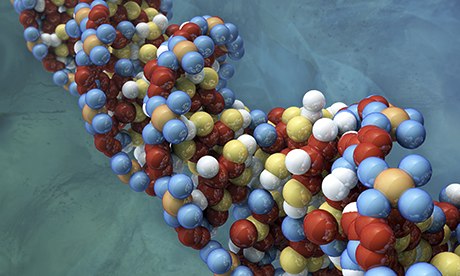 Roughly one in every five sunlike stars is orbited by a potentially habitable, Earth-size planet, meaning that the universe has abundant real estate that could be congenial to life, according to a new analysis of observations by NASA’s Kepler Space Telescope.
Roughly one in every five sunlike stars is orbited by a potentially habitable, Earth-size planet, meaning that the universe has abundant real estate that could be congenial to life, according to a new analysis of observations by NASA’s Kepler Space Telescope.
Our Milky Way galaxy alone could harbor tens of billions of rocky worlds where water might be liquid at the surface, according to the report, which was published Monday in the Proceedings of the National Academy of Sciences and discussed at a news conference in California.
Kepler Space Telescope finds Earth-size, potentially habitable planets are common
Exoplanet tally soars above 1,000
 The number of observed exoplanets - worlds circling distant stars - has passed 1,000.
The number of observed exoplanets - worlds circling distant stars - has passed 1,000.
Of these, 12 could be habitable - orbiting at a distance where it is neither "too hot" nor "too cold" for water to be liquid on the surface. The planets are given away by tiny dips in light as they pass in front of their stars or through gravitational "tugs" on the star from an orbiting world.
These new worlds are listed in the Extrasolar Planets Encyclopaedia.
US scientist discovers DNA body clock
 A US scientist has discovered an internal body clock based on DNA that measures the biological age of our tissues and organs.
A US scientist has discovered an internal body clock based on DNA that measures the biological age of our tissues and organs.
The clock shows that while many healthy tissues age at the same rate as the body as a whole, some of them age much faster or slower. The age of diseased organs varied hugely, with some many tens of years "older" than healthy tissue in the same person, according to the clock.
Skull Fossil Discovery Suggests Simpler Evolutionary History
 After eight years spent studying a 1.8-million-year-old skull uncovered in the republic of Georgia, scientists have made a discovery that may rewrite the evolutionary history of our human genus Homo.
After eight years spent studying a 1.8-million-year-old skull uncovered in the republic of Georgia, scientists have made a discovery that may rewrite the evolutionary history of our human genus Homo.
It would be a simpler story with fewer ancestral species. Early, diverse fossils — those currently recognized as coming from distinct species like Homo habilis, Homo erectus and others — may actually represent variation among members of a single, evolving lineage.
What archaeology tells us about the Bible
For the past 20 years, a battle has been waged with spades and scientific tracts over just how mighty David and the Israelites were. A string of archaeologists and Bible scholars, building on critical scholarship from the 1970s and '80s, has argued that David and his son Solomon were the product of a literary tradition that at best exaggerated their rule and perhaps fabricated their existence altogether.
For some, the finds at Qeiyafa have tilted the evidence against such skeptical views of the Bible. Garfinkel says his work here bolsters the argument for a regional government at the time of David – with fortified cities, central taxation, international trade, and distinct religious traditions in the Judean hills. He says it refutes the portrayal by other scholars of an agrarian society in which David was nothing more than a "Bedouin sheikh in a tent."
Lonely planet without a star discovered wandering our galaxy
 An exotic young planet free-floating through the Milky Way galaxy rather than orbiting any star is practically a newborn in cosmic terms, astronomers say.
An exotic young planet free-floating through the Milky Way galaxy rather than orbiting any star is practically a newborn in cosmic terms, astronomers say.
Dubbed PSO J318.5-22, the planet without a host star is 80 light-years away from Earth and has a mass only six times that of Jupiter. It formed a mere 12 million years ago, researchers said -- a newborn in planet lifetimes.
Scientists who took chemistry into cyberspace win Nobel Prize
 Three U.S. scientists won the Nobel chemistry prize on Wednesday for pioneering work on computer programs that simulate complex chemical processes and have revolutionized research in areas from drugs to solar energy.
Three U.S. scientists won the Nobel chemistry prize on Wednesday for pioneering work on computer programs that simulate complex chemical processes and have revolutionized research in areas from drugs to solar energy.
The Royal Swedish Academy of Sciences, awarding the prize of 8 million crowns ($1.25 million) to Martin Karplus, Michael Levitt and Arieh Warshel, said their work had effectively taken chemistry into cyberspace. Long gone were the days of modeling reactions using plastic balls and sticks.
More Articles...
Page 22 of 61

 Science Glance
Science Glance






























